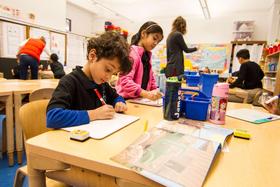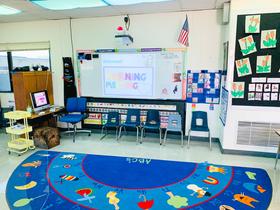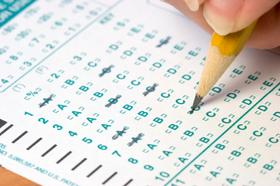Standardized testing has become a widely adopted approach to measure student progress and performance – and based upon some of President Obama’s proposals, more tests may be on the horizon for your child. In fact, the federal initiative No Child Left Behind even made standardized testing mandatory for all public schools.
While standardized testing may be one way to effectively measure student learning, many educators argue that students spend far too much time in school simply learning how to take tests. As a result, students and teachers lose out on more valuable lessons and complex instructional activities. Ultimately, leaders are looking ahead to see whether or not students will be forced to endure even more hours of rigorous testing.
Former School Testing Policies
Former President George W. Bush initially created his No Child Left Behind (NCLB) act in order to ensure that all public schools were effectively educating its students. As a result of NCLB, every public school was required to give their students specific subject area tests.
If students failed these tests, their school was put on an action plan and potentially lost some of its funding. On the other hand, if students passed these tests, their school was often financially rewarded with increased funding. While on the surface level, it appears as though NCLB would help reward successful schools, many experts argue that it has only severely punished kids who are in schools with lower budgets, less supplies, and larger class sizes.
Adding to this, the mandates of NCLB have forced all public school students to engage in incredibly rigorous test-prep classes, in addition to forcing teachers to take time away from their regularly planned curriculum to accommodate for the many time-consuming demands of testing.
Future Plans for Standardized Testing
While many are opposed to the testing statues in NCLB, a new rise of critics now fear that President Obama may enforce the same problematic plans. According to the New York Times, many Obama supporters had high hopes that the new President would shift the main requirements of NCLB; however, recent reports reveal that Obama may be further enforcing various testing demands: “The law’s testing requirements may evolve but will certainly not disappear. And the federal role in education policy, once a state and local matter, is likely to grow.”
According to critics, President Obama may continue with the plan to utilize standardized tests as a measure of teacher and school performance. For example, although Obama has set aside a great deal of money for public school support, he has stipulated that state governors must “pledge to improve the quality of standardized tests and raise standards.” If schools effectively achieve this rather vague goal, then the schools may be entitled to a fiscal reward from the federal Education Secretary, Arne Duncan, who has been allotted $5 billion dollars for funding.
How Schools Are Responding to Standardized Testing
According to some reports, many public schools are already beginning to increase their standardized testing requirements. For example, various public schools in Pennsylvania have been recently required to boost their standardized testing practice and performance. In this case, Tulpehocken Area School District in Bernville and Crestwood School District in Mountain Top now require their students to complete grade-level standardized tests, in addition to the tests that are already mandated by Pennsylvania state law. Once these tests are complete, a student’s score will be reported on his or her grade report / transcript.
Aside from Pennsylvania, many other schools and states are experimenting with ideas to implement new tests as part of a child’s grade completion requirements. While school leaders across the country are still relatively unsure as to what approach President Obama will take regarding the issue of testing, most critics believe that students will soon be exposed to an increasing number of tests.
Unfortunately, as critics of nation-wide testing and NCLB assert, forcing schools to focus solely on test scores only puts failing schools at a greater risk, as their existence and income are dependent only on performance. This puts schools comprised of more special education or non-English speaking students at an unfair funding disadvantage.
Adding to this, as the Chicago Daily Observer explains, the constant reinforcement of testing is not an appropriate measure of each student’s real learning. As the Observer contests, “There is far more to educating kids to be good citizens—issues of reasoning, critical thinking, creativity, human relationships and so forth. Making everything dependent on test scores…simply builds in larger failures.”
Questions? Contact us on Facebook @publicschoolreview.














